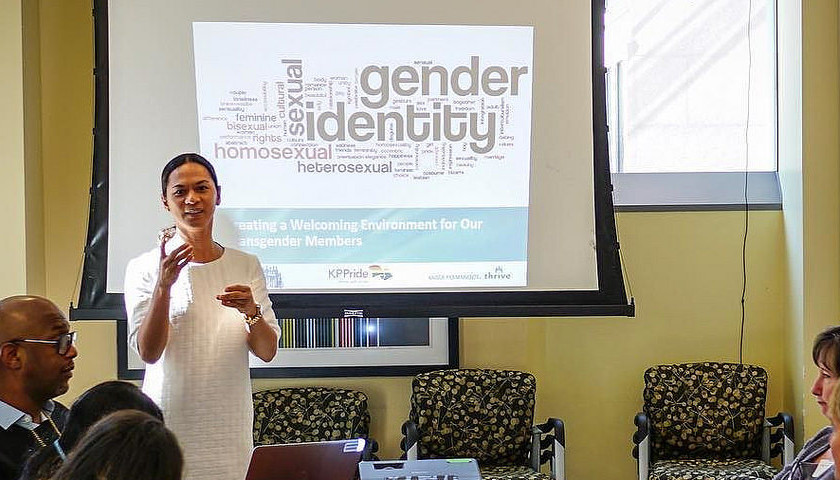by Grace Carr
U.S. doctors are willing to provide health care services to transgender individuals, but most of them aren’t adequately trained to provide care specific to such persons, a study suggests.
Over 85 percent of doctors who responded to a survey said they are willing to provide care to individuals identifying as transgender, according to Annals of Family Medicine, Reuters Health reported Tuesday. Nearly 80 percent of those respondents also said they would be comfortable providing Pap tests to women who identify as men.
 Pap tests screen for cervical cancer, an illness that can only afflict biological females.
Pap tests screen for cervical cancer, an illness that can only afflict biological females.
Transgender persons frequently report negative health care experiences, study leader Deirdre Shires told Reuters, noting a lack also of understanding about doctors’ perspectives on transgender health services. Shires is an assistant professor in the School of Social Work at Michigan State University.
“We realized that no one had really gotten the perspective of providers to find out why this was happening,” Shires told Reuters.
Doctors overwhelmingly reported a lack of understanding regarding transgender-specific care training and gender transition care guidelines, as well as a lack of exposure to transgender patients, according to Reuters.
Older doctors were not as willing to provide care to transgender patients, according to the study results, Reuters reported.
“Medical knowledge and clinical experience may be less important than personally feeling comfortable with transgender people,” Shires said. “Therefore, it is important for medical education to address not only clinical knowledge but also personal biases and attitudes as well.”
Researchers involved in the study noted the survey was limited to one medical system, and that the number of survey respondents reflected only half of doctors invited to participate in the survey.
Over 300 internal medicine and family practice doctors were invited to participate in the study; 140 doctors provided responses.
The survey responses are “likely an over report of willingness to provide care,” according to Dr. Janelle Downing, who notes that doctors not comfortable with providing care to transgender persons likely did not respond to the survey, Reuters reported.
There were 3,200 gender affirmation surgeries in the U.S. in 2016, the American Society of Plastic Surgeons (ASPC) reported in May 2017. The procedures include breast reduction or augmentation, facial feminization procedures, body contouring and genital reassignment surgeries.
Transgender surgeries rose roughly 20 percent between 2015 and 2016, an ASPS survey of 703 doctors also shows. Less than 0.5 percent of those surgeries were genital, according to the survey released in May, NBC News reported. The 2016 survey included reports from 3,256 transgender surgeries, with the percentage of men transitioning to women and vice versa split roughly down the middle.
“Given the significant lack of training in sexual and gender minority health in medical schools, it is no surprise that providers are unfamiliar with transgender health issues and primary care needs,” Dr. Carl Streed Jr. said, according to Reuters.
Streed works in Boston Medical Center’s Transgender Medicine and Surgery department. He also chairs a committee on LGBTQ Matters at Massachusetts Medical Society.
A number of companies have expanded health care coverage for transgender employees. Starbucks changed its policies in June to give benefits to employees that identify as transgender, including coverage for cosmetic procedures that will help employees look more aesthetically pleasing. Starting in 2012, the coffee company offered health insurance plans that cover gender reassignment surgery, but those benefits now include breast reduction or augmentation surgeries, facial feminization procedures and hair transplants among other procedures, Market Watch reported.
The World Health Organization (WHO) announced on June 19 that it won’t classify gender dysphoria as a mental disorder in its upcoming 11th edition of its International Classification of Diseases.
Shires did not respond to The Daily Caller News Foundation’s request for comment.
– – –
Grace Carr is a reporter for the Daily Caller News Foundation. Follow Grace on Twitter.
Photo “Gender Identity Presentation” by Ted Eytan.




